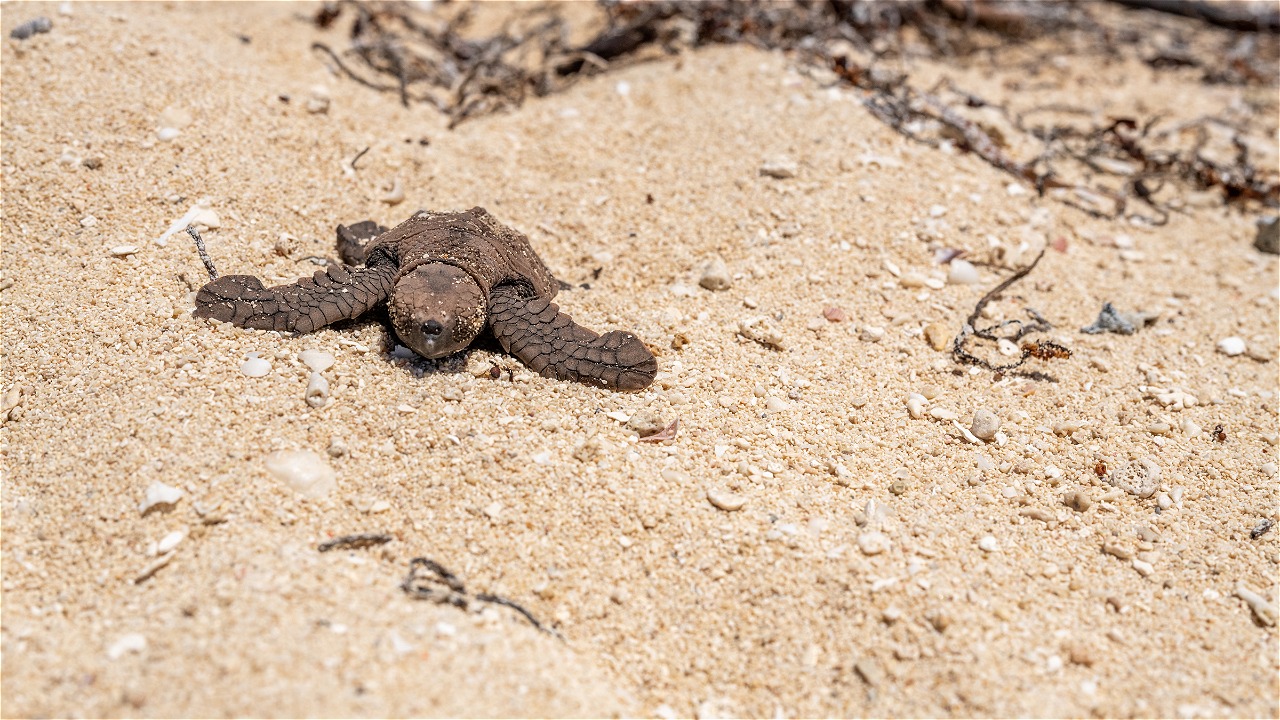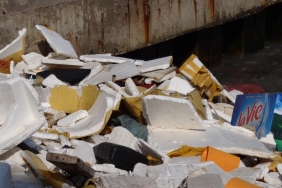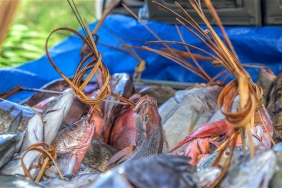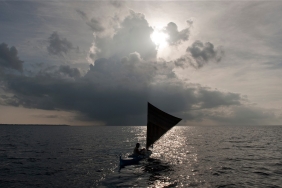SEA TURTLE CONSERVATION AND THE THREAT OF PLASTIC WASTE
By: Natalia Trita Agnika
That afternoon, Wednesday (15/02), under the scorching sun, about 20 students and two teachers from a school in Bangladesh who were participating in conservation education activities with WWF-Indonesia were diligently picking up trash on the shores of Serangan Beach, Bali. The activity they did was part of the Beach Cleanup. More than 10 large trash bags were collected in just two hours. On average, they collected plastic waste such as plastic cups, used plastic bottles, straws and plastic bags.
The amount of trash on the beach is one example of the condition of beaches in Indonesia. The issue of waste pollution, especially related to the issue of marine waste pollution, has become a concern of the public and the Government of Indonesia since the publication of the results of Jambeck, Jena R., et.al, 2015 entitled "Plastic Waste Inputs from Land into the Ocean" (www.sciencemag.org, February 12, 2015) which stated that the potential for plastic waste in Indonesia's oceans reached 187.2 million tons/year. The results of this study also state that Indonesia is the second largest country in the world that contributes waste to the sea after China.
In fact, garbage, especially plastic waste, is the mortal enemy of marine animals, especially sea turtles. Plastic bags drifting in the sea are often mistaken for jellyfish, which are a favorite food of sea turtles. If eaten, the non-biodegradable plastic can block the digestive tract and poison the turtle's body. An alarming sight was seen when a sea turtle was tortured by a plastic straw blocking its nose. Plastic debris will also block turtles that are about to pull over and return to the sea.
Plastic waste threatens the sustainability of sea turtles. We cannot remain silent about this condition. One of the things that we can easily do is to reduce the use of plastic and not throw it carelessly. The #SejutaAksi movement initiated by the Earth Hour Indonesia Community is a manifestation of reducing the use of plastic bags. This movement invites one million individuals (or groups) to make and donate used T-shirts to be used as shopping bags (reusable shopping bags) in an effort to reduce the use of plastic bags. The action will last for one year until March 2018. Supporting the #SejutaAksi movement indirectly contributes to the preservation of sea turtles in the ocean.
In addition to plastic waste, sea turtle conservation also faces threats due to habitat and nesting site destruction, capture, illegal trade, and exploitation that harm the environment. You can directly support sea turtle conservation efforts in Indonesia by joining as a Turtle Warrior WWF-Indonesia. For more information, visit wwf.id/turtlewarrior.





